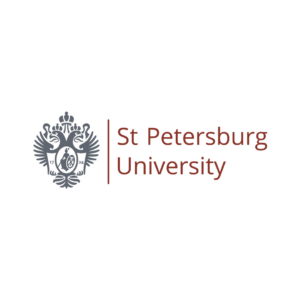St. Petersburg State University (hereinafter – SPbU, University) is the first university of Russia which was created in 1724 by the Decree of Tsar Peter the Great together with Russian Academy of Sciences. In 2009 according to the Federal Law St. Petersburg University has been given the status of a unique scientific and educational complex, the oldest university in the country, which is of great importance for the development of the Russian society. The special status of the University makes it possible to conclude direct cooperation agreements with public authorities and foreign Governments. Thus, among the partners of St. Petersburg University are the Ministry of Education of the People’s Republic of China, the Ministry of Foreign Economic Relations and Foreign Affairs of Hungary, the Ministry of Education, Culture, Science and Sports of Mongolia, etc. Rector of St. Petersburg University is appointed by the President of the Russian Federation.
Among the partners of the University are the largest public and private Russian and foreign companies, public organizations, government agencies and regions of the Russian Federation. St. Petersburg University pays great attention to cooperation with the world’s leading educational and scientific organizations. Today, more than 590 universities and organizations from 65 countries of the World are partners of St. Petersburg University.
St. Petersburg State University, as part of its expert activities, conducts consulting, expert and scientific research, prepares expertise for business, government authorities, corporations and individuals. This work is organized by Center for Expertise, the Mediation Center, the Center for Language Testing, and clinics at St. Petersburg University.
St. Petersburg University is one of the leading Russian interdisciplinary research centers. Today, there are more than 15 laboratories at University, created under the Megagrants Program of the Government of the Russian Federation, 500 research groups and 900 scientific projects.
Academic: GPA of 3.0 or above on their studies to date
English Language:
– IELTS: 6.0 (no subscore below 6.0)
– TOEFL iBT: 78
– Duolingo English Test: not accepted
25 August 2024 – 31 January 2025
Available Courses
The bachelor’s programme is designed for applicants who are interested in diverse aspects of contemporary society: social and political processes; the study of cultural diversity in society; ethnic, religious and other socio-cultural communities; youth subcultures; problems in the youth environment; interests and values of the younger generation; the study of interaction between economy and society; processes of socio-economic development; organisation and management of labour relations; and social communication to name just a few.
It is important for today’s companies to be able to analyse and adapt international best practices for business development and entry into foreign markets. To work effectively, companies need specialists with knowledge of the economic, political, legal and socio-cultural environment of different regions of the world and the local features of doing business. The programme ‘International Management’ is particularly designed to train such specialists
The bachelor’s programme “Theory and Practice of Intercultural Communication (English)” trains experts in linguistics and intercultural communication. Teaching combines the study of fundamental disciplines, modern information and communication technology and the acquisition of practical skills and abilities needed for mutual understanding of other cultures. Students study the history, customs and social organisation of the target language countries. The programme is unique in that it combines knowledge of English and Anglo-Saxon cultures with professional skills in the use of non-Indo-European languages (Arabic, Finnish, or Japanese) and the cultures involved.
Research related to the study of: cognition; thinking; perception; knowledge representation and acquisition; specific features of language as a means of cognition and communication; and brain mechanisms of cognition and complex behaviours.
The bachelor’s programme “Applied, Computer and Computational Linguistics (English)” is one of the innovative interdisciplinary programmes that involves a wide range of fundamental and applied knowledge in the field of language theory, linguistic analysis, higher mathematics, probability theory and mathematical statistics, Russian language theory, and the fundamentals of programming. Additionally, students acquire: an in-depth knowledge of the practical use of two foreign languages; and cutting-edge computer-aided techniques for text processing and analysis.
The bachelor’s programme of ‘Cross-Linguistic Communication and Translation: English’ is designed to train experts possessing: skills of liaison interpreting and bilateral translation of stylistically and thematically different texts from Russian to English and from English to Russian (translation and consecutive and simultaneous interpreting); and knowledge of the key theoretical issues in translation studies and linguistics
The bachelor’s programme “Theoretical and Experimental Linguistics (English)” is designed to train experts in theoretical linguistics who are ready to carry out research and teaching activities. The programme was developed by prominent St Petersburg linguists based on St Petersburg scholarly traditions and the best practices of the world’s top universities that train experts in theoretical and experimental linguistics. The programme focuses on: an in-depth study of the disciplines of the curriculum; and preparing students for independent research activities in the relevant fields of linguistics. An extensive system of practices also serves this purpose. The programme involves the study of: four living European and oriental languages at their choice; and Ancient Greek, Latin, and Old Church Slavonic.
The bachelor’s programme “Applied, Computer and Computational Linguistics (English)” is one of the innovative interdisciplinary programmes that involves a wide range of fundamental and applied knowledge in the field of language theory, linguistic analysis, higher mathematics, probability theory and mathematical statistics, Russian language theory, and the fundamentals of programming. Additionally, students acquire: an in-depth knowledge of the practical use of two foreign languages; and cutting-edge computer-aided techniques for text processing and analysis.
Russian Language practical course for foreign students
The bachelor’s programme ‘Russian Studies’ is designed to develop a holistic understanding of Russia’s importance in the global civilisation process from antiquity to the present

